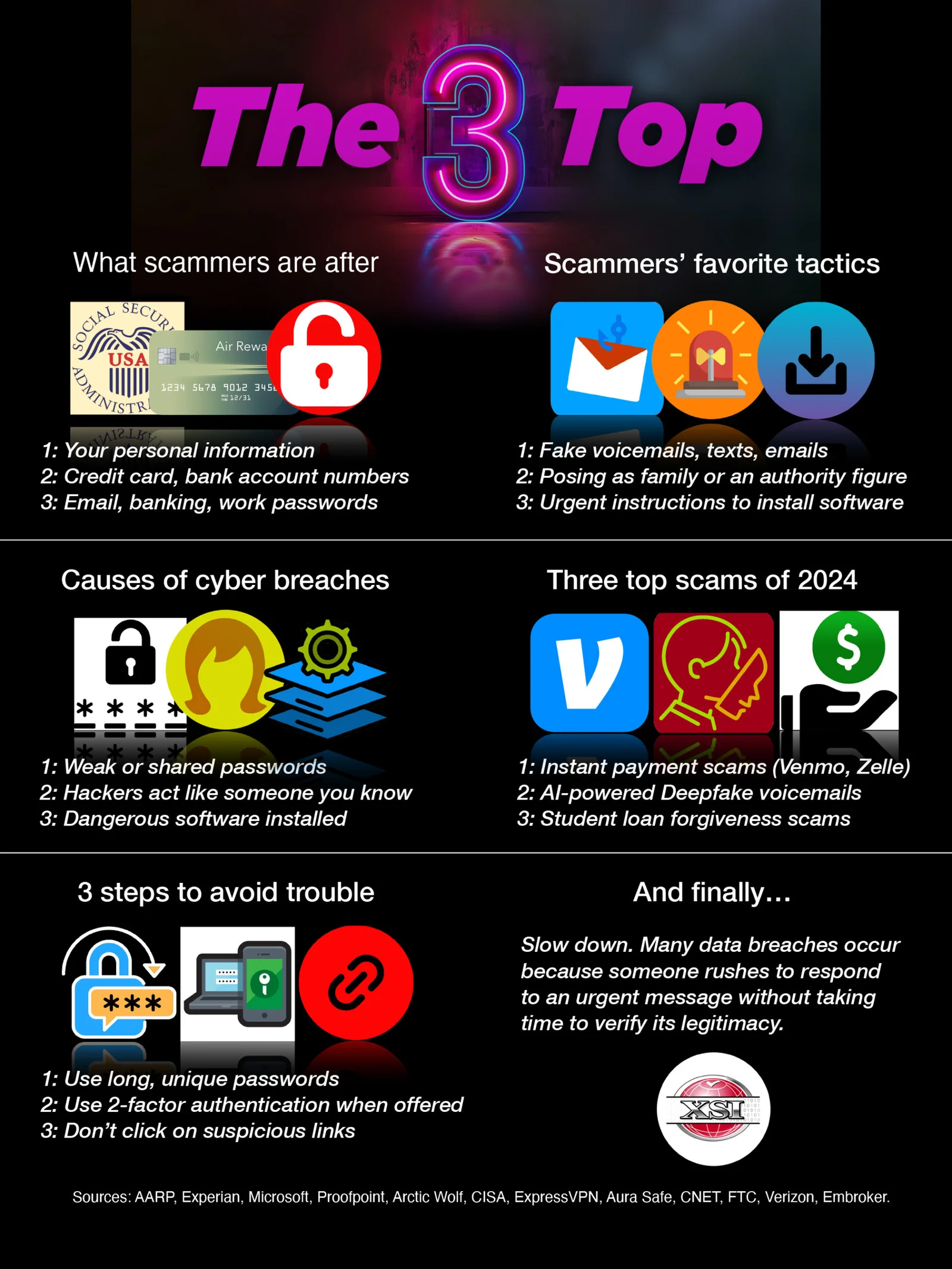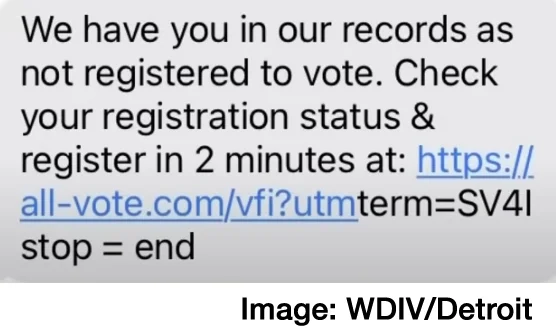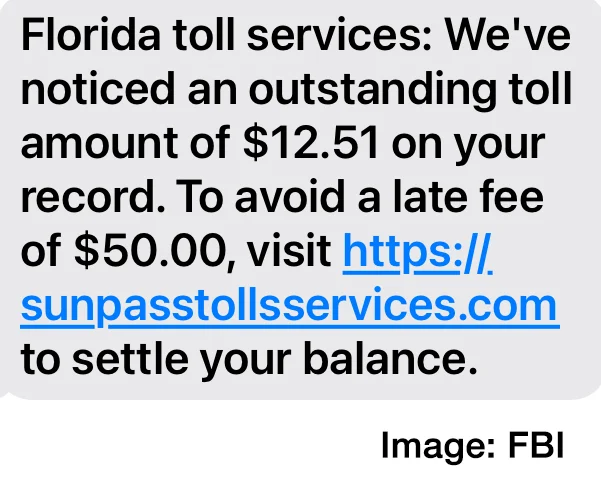
Vish of the Week
This voicemail sounds authoritative and a little angry.
But since the caller doesn’t identify who she represents
and your phone doesn’t identify the number…
it’s best to ignore it.

Cybersecurity News You Can Use

ELECTION ALERT: Voters should beware of text messages notifying them that they aren’t yet registered to cast ballots. Cybersecurity journalist Brian Krebs says voter groups are sending links to forms requesting personal information, including mobile phone numbers. It’s unclear who is collecting the information in at least one case. In the US, vote.gov is a reliable website for checking a voter’s status.

MAYBE YOU DON’T OWE THAT FINE: The Federal Trade Commission says consumers should also be aware of text messages claiming they owe a late fee for unpaid tolls to use roads or bridges. Scammers are trying to collect driver’s license numbers to steal peoples’ identities. If you receive a text about an unpaid toll, don’t respond to it. Instead, call the toll agency or visit its website directly.
These organizations say they have been hacked recently. If you do business with any of these, change the password on your account and use two-factor authentication wherever possible.

One more thing...

Answers to Your
Cybersecurity Questions
“Is it better to save or bookmark my bank’s web address or enter it each time I want to log in?”
– Lisa K
It’s generally better to manually enter your bank’s web address each time you log in rather than relying on saved links or bookmarks. Manually entering the URL reduces the risk of accidentally clicking on a malicious website designed to look like your bank’s site. Also, having links or bookmarks saved on your phone or personal computer might make it easier for others to access your account if you lose your phone.
“I received a bank verification email that mentioned a bank different from the one I applied to online. How can I determine if it’s a hack?” — Earlene T
If the email mentions a different bank, it could, indeed, be a case of fraud. But it’s also possible the institution where you applied works with partners. Before proceeding, confirm what’s going on with your bank by calling the customer support number on their website.
“Is my phone always listening to me so it can show targeted ads?”
— Barry V.
According to Surfshark and Norton, voice assistants like “Hey Google” and Apple’s Siri always listen for instructions by default, and many apps can access your phone’s microphone for functionality and personalization. Disreputable apps might go further. Want to change that?
Android phones
To stop the Google Assistant from listening on your Android phone:
- Open Settings > Tap Security & privacy > Open the Privacy dropdown menu > Select Privacy controls > Toggle the Microphone access switch to turn permission on or off.
To stop third-party apps from accessing your Android phone:
- Open Settings > [select the app] > Permissions > Microphone > Select Don’t allow. The steps may vary slightly depending on the Android model.
iPhones
To stop Siri from listening on your iPhone and iPad:
- Open Settings > Siri & Search > Toggle off Listen for ‘Hey Siri’ and press the Side button for Siri > Tap Turn Off Siri when a pop-up window appears.
To stop third-party apps from accessing your iPhone and iPad:
- Open Settings > [select the app] > then toggle off Microphone.
Only use your phone’s official store to download apps and understand the terms the app requires.
Cartoon © 2024 Cartoonstock | Original content © 2024 Aware Force LLC
